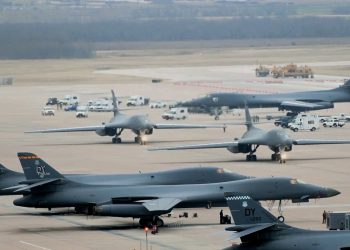Agence France-Presse,
ISLAMABAD: Pakistan stoked tensions with Afghanistan on Monday, summoning the Afghan envoy and vowing to defend its sovereignty after President Hamid Karzai threatened cross-border attacks on militants.
Karzai sent relations between the two allies in the US-led “war on terror” plummeting to a new low on Sunday when he said that his war-torn country would be justified to strike Taliban rebels on based on Pakistani soil.
His comments brought hundreds of Afghans onto the streets in support in Afghanistan on Monday but caused alarm amongst the two countries' Western allies, who have thousands of troops based in insurgency-hit Afghanistan.
Pakistani Foreign Minister Shah Mehmood Qureshi warned in a statement that he would “like to make it absolutely clear that Pakistan shall defend its territorial sovereignty.”
Qureshi condemned Karzai's “irresponsible, threatening” comments, adding that the the only way to combat extremism was by “non-interference in each others' internal affairs”.
The Afghan ambassador to Islamabad, Anwar Anwarzai, was summoned to the foreign office on Monday “and a strong protest was lodged over President Karzai's statement,” foreign office spokesman Mohammad Sadiq told AFP.
In London, US President George W. Bush urged Afghanistan and Pakistan to expand their dialogue on how to confront militants operating along the porous 1,500-mile (2,500-kilometre) frontier.
“There needs to be better cooperation,” Bush said after talks with British Prime Minister Gordon Brown. “There can be more dialogue between the Pak (Pakistani) government and the Afghan government.”
The volatile situation on the border was highlighted last week when Pakistan accused “cowardly” US-led coalition forces of killing 11 Pakistani soldiers in an airstrike in a lawless tribal region.
Kabul had no immediate comment on the developments in Islamabad, but more than 2,000 tribesmen and religious leaders gathered in the eastern Afghan province of Paktika to back their president.
“We support Karzai. Pakistanis are coming to Afghanistan and we have evidence,” Amin Jan, a tribal chief involved one of the protests, told AFP.
Afghan and Western officials have repeatedly accused Pakistan of failing to curb Al-Qaeda and Taliban extremists based in its troubled tribal belt and have expressed concerns over its recent negotiations with Taliban commanders.
Pakistan abandoned its support for the hardline Taliban movement and backed the US-led invasion of Afghanistan in 2001, but Afghan officials have raised questions about the possibility that Islamabad covertly still backs the rebels.
Islamabad strongly rejects the claims, saying that the root of the problem is in Afghanistan and that it has more than 90,000 troops along the border, with 1,000 Pakistani soldiers having died fighting insurgents since 2001.
Pakistani Prime Minister Yousuf Raza Gilani said on Sunday after Karzai's comments that Islamabad would not “allow anyone to interfere in our affairs.”
Karzai had told a news conference on Sunday in his toughest words yet on the militant problem on the border that “Afghanistan has the right to destroy terrorist nests on the other side of the border in self-defence.”
The Afghan leader sent a specific warning to Pakistani Taliban warlord Baitullah Mehsud, whom the previous Pakistani government has blamed for the December assassination of former premier Benazir Bhutto.
Mehsud is one of the key figures in negotiations launched by Gilani's government soon after it came to power in March having defeated allies of President Pervez Musharraf in general elections.
Despite the presence of about 70,000 international troops mainly operating under NATO, the insurgency aimed at toppling the US-backed government in Kabul has gained pace in the past two years.
Karzai's government suffered a blow on Friday when Taliban militants blasted open the main prison in Kandahar city, freeing more than 1,100 prisoners including hundreds of insurgents.








